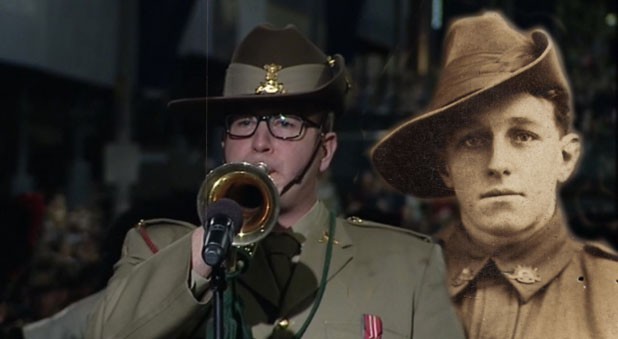Anzac Day services around the world today have retained Christian elements on the 100th anniversary of the Gallipoli landing.
The Christian character of the services has been evident from Psalm reading, such as Psalm 23, Christian hymns such as O God our help in ages past and Nearer my God to Thee, and the involvement of chaplains and others in Christian prayer.
According to the statistics, in 1915 the overwhelming majority of Australia (96 per cent) identified with the Christian faith, while today this is down 61 per cent.
However, in significant public occasions and particularly remembering a generation which held a high place for Christianity, the services have been flavoured with Christian elements.
Anglicans across Sydney have been remembering those whose names are inscribed on Honour Rolls of parish churches.
From letters home remembered in Wollongong, to members of the Annandale community who fought and lost their lives - churches have marked the centenary.
Moore College historian Colin Bale, writing in Southern Cross magazine, said "There will be understandable focus on the meaning of Gallipoli for Australia as a nation in this centenary year but it is also important to remember the numerous individual Australians who served – and especially those who died, not only at Gallipoli, but also in other theatres of World War I."
While famous exploits are being remembered, Dr Bale, who has made a study of Commonwealth War Graves, said it was important to remember those whose stories will not be told.
"As is often stated on the graves of unknown soldiers in the war cemeteries, while they may be unknown to us they are “known unto God”. Dr Bale said.
Archbishop Glenn Davies led an emotional service for War Widows at St Andrew's Cathedral this week and Sydney Anglican clergy participated at services across the city and surrounds.
Sydney standing committee member and leading layman, James Flavin, was at Gallipoli, commemorating his grandfather who fought at Gallipoli aged just 19.
At the Dawn Service at Anzac Cove, Prince Charles read from a letter from a christian, Company Quartermaster Sergeant Benjamin Leane of the 10th Battalion, written the night before the landings.
Sergeant Leane feared he might be killed at Gallipoli, but he survived the campaign only to be killed by an artillery shell in France in 1917.
"But I love you dearly, my own Phyllis, and I trust that you will always love me." he wrote on April 24th, 1915. "But remember, dear, that if I am killed, I wish you to do absolutely as you think advisable for your future … One little word for mother, dear. Bear with her and be good to her in her few remaining years, for I know she loves me dearly. And tell her that I am not afraid to die, nor am I afraid of what is to come after death. Just tell her 'I know in whom I have believed'. And now, dear, dear sweet heart, goodbye, goodbye."





















